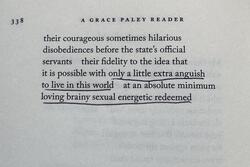Elizabeth Scharpf's DIY Aid project: keeping African girls in school with affordable pads
There was a really interesting article in The New York Times last week by Nicholas D. Kristof about individuals who are, in effect, creating foreign aid on their own. He writes about various people who, feeling passionately about helping the world, got up, changed their lives, and simply, did it. He tells a few stories, highlighting the fact that many of the members of the “Do-It-Yourself Foreign Aid Revolution” are women. One that I find to be particularly interesting is the story of Elizabeth Scharpf. While interning for a summer in Mozambique with the World Bank, she learned that many women were hesitant to go to work while menstruating because of the high cost of feminine hygiene products. When she came back to Harvard, she asked around, and discovered that a similar problem existed in many countries around the globe, but that it was often a topic too taboo to discuss.
So she came home, contacted people she knew in pharmaceuticals and biotech, and tried to design a company to produce cheap sanitary pads that women could distribute through a franchise system. After discovering that commercial pads were expensive to manufacture because of pricey raw materials, she got together a team that designed a pad made out of banana fibers that proved to be eco-friendly, absorbent, and significantly cheaper to produce. After winning a grant and a fellowship, Scharpf has created an organization called Sustainable Health Enterprises that will begin manufacturing pads next year in Rwanda and that is advocating for the Rwandan government to lift the 18 percent sales tax on feminine hygiene products to make them more affordable.
It’s unclear how much of an effect the banana-fiber pads will have. Perhaps they will still be too expensive for families to buy, or girls will still miss school because of menstrual cramps. There are studies that show that providing girls with pads actually increases school attendance, but also studies that show that providing bicycles would help more than pads; the pads’ immediate effects are still an unknown.
However, I think that even if her project does not have grand, sweeping results, it’s important to think about the fact that this is exactly the type of innovation that our world needs today: ideas that take into account and carefully consider monetary, environmental, and social concerns. Often times, we think about philanthropy just in terms of giving money, and forget that money needs to go somewhere — and that where it goes matters. Instead of trying to pay for women’s sanitary pads and continue to supply women with them, Scharpf is trying to create a sustainable system that can exist without a constant stream of money from outside donors. Not only that, but she’s trying to empower women by filling an obvious void in their lives, and relieving them of one more burden preventing them from going to school. It takes a lot of time to change a society in which women are expected to miss school often, but providing them with the tools they need to allow them to feel comfortable school is the first step.
I wanted to share this with you all because I think it’s an interesting and important story, but also because as Jewish women we should remember that we’re part of a long train of healthcare activism. Lillian Wald, the woman who first coined the term “public health nurse,” was a leader of a movement of nurses who worked outside of hospitals inside poor communities. These women, taking a new and novel approach to healthcare, worked on preventative health as well as treatment of ailing patients. Under Wald’s influence, the New York Board of Health began to organize the first public nursing system in the world. Wald did not just work for a short-term solution to a problem, but rather succeeded at shaping a long-term healthcare system. With her in mind, we should applaud women like Scharpf for their innovation and efforts.






As a woman, I greatly appreciate Elizabeth Scharpf's response to one issue we women face because of menstruation. However, expense is not the only problem women face in the worlds of work and education. Irregular periods, especially heavy ones, and period-related pain can also create havoc in affected women's lives. I myself dealt with the former problem most of my adult life, and in college, I had a friend and roommate who missed at least a few days of classes each month because of debilitating pain. While I appreciate Ms. Scharpf's work to help women in poor environments obtain feminine protection, this is not the only difficulty we women face because of our periods. Is anyone dealing with the other problems? I for one would be interested.